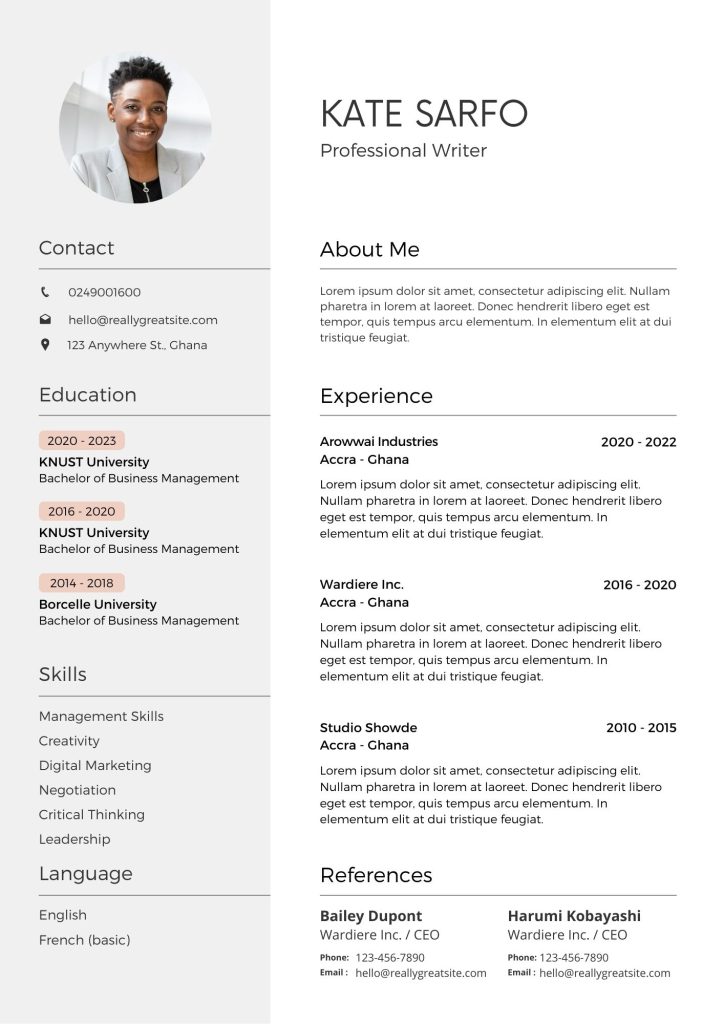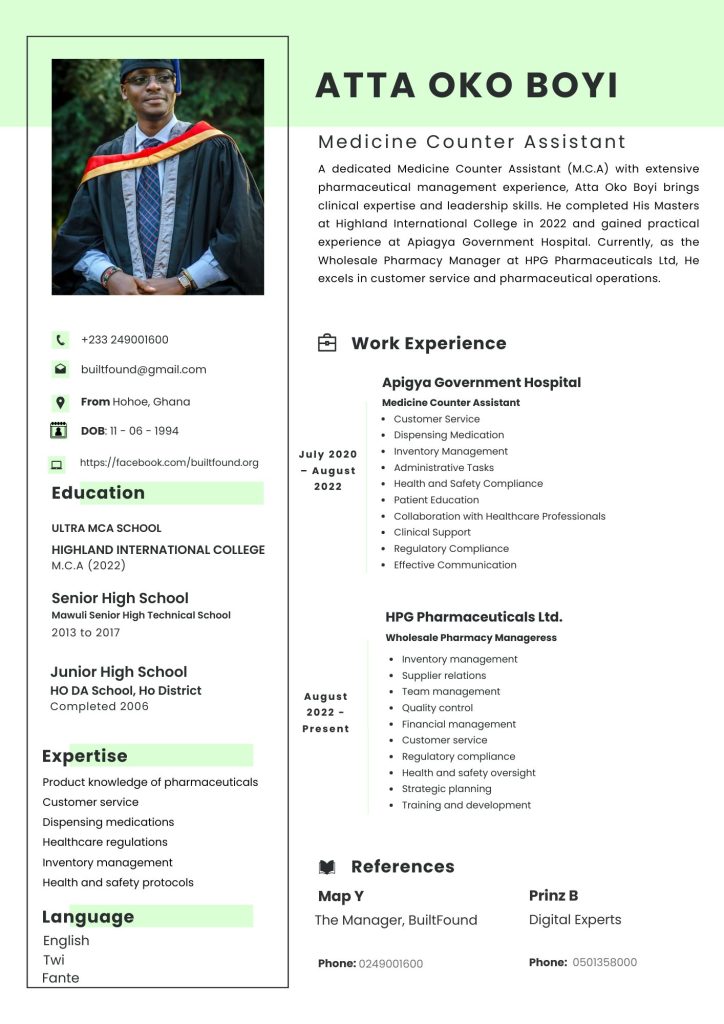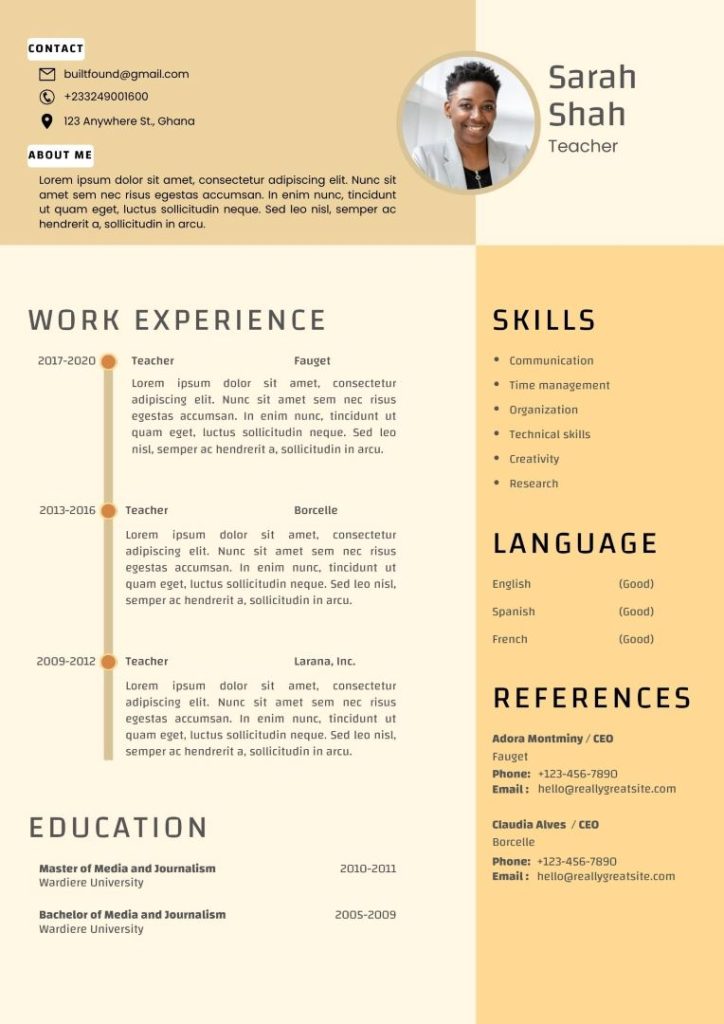Creating a standout CV in Nigeria can be the key to landing your dream job. This guide provides step-by-step instructions on how to write a CV tailored for the Nigerian job market, complete with samples and examples to help you get started. Whether you are a fresh graduate or an experienced professional, our team of experts is here to assist you in crafting a CV that showcases your skills and achievements. Learn how to present your qualifications effectively and increase your chances of securing job interviews today.
Professional CV Writers In Nigeria
CV writers in Nigeria. Get the best CV writing service in Nigeria at affordable rate
✓ Professional CV
✓ Expert Design & Appeal
✓ Adept For Nigerian Market
✓ Revisions & Upgrades
✓ Bring Out Your Best
✓ Fast Delivery
✓ Affordable
✓ Land the Dream Job

How To Prepare A CV Or Resume In Nigeria
Creating an effective CV (Curriculum Vitae) requires a strategic approach to showcase your skills, experience, and education in a clear, concise, and compelling manner. CV or Résumé should tailored to the job market in your locality or country, such as in our case Nigeria. Here’s a step-by-step guide on how to write a CV in Nigeria, including preparation tips and essential components:
Preparing to Write a CV
- Understand the Purpose:
- A CV is a detailed document that provides an overview of your professional history, skills, and education. It is often used for academic, scientific, or international positions, whereas a resume is typically used for most other job applications. For now we use the term interchangeably as focus on landing a dream job.
- Research the Industry:
- Tailor your CV to the industry you are applying to by researching common skills, qualifications, and formats that are preferred in that field.
- What does the industry or business hope to accomplish by hiring? What Locality in Nigeria or what is the language or the people, can you communicate effectively in that language?
- Gather Information:
- Collect details about your educational background, work experience, skills, certifications, publications, and any other relevant achievements. Here it is important to do a self discovery to understand your strengths and weaknesses as you apply for the job.
- Choose the Right Format:
- Decide on a CV format that best showcases your strengths. Common formats include chronological, functional, and combination styles.
- The chronological CV is the most traditional format and is widely used. It focuses on listing work experience in reverse chronological order, starting with the most recent position.
- The functional CV emphasizes skills and achievements rather than chronological work history. It’s ideal for those with gaps in employment or those changing careers.
Essential Components of a CV
- Contact Information:
- Name, address, phone number, and email address. Make sure your email is professional.
- Professional Profile/Objective:
- A brief summary of your skills and career goals. This section should grab the employer’s attention and provide a snapshot of who you are.
- Education:
- List your educational background, starting with the most recent. Include degrees, institutions, and graduation dates. If relevant, mention any honors or special projects.
- Work Experience:
- Provide a detailed account of your work history, starting with the most recent. Include job titles, company names, locations, and dates. Describe your responsibilities and achievements using action verbs and quantifiable results where possible.
- Skills:
- Highlight relevant skills, both technical and soft. Tailor this section to match the job description of the position you’re applying for.
- Certifications and Licenses:
- Include any relevant certifications, licenses, or professional affiliations.
- Publications/Research (if applicable):
- List any academic publications, research papers, or presentations.
- Awards and Honors:
- Mention any awards, honors, or recognitions that are relevant to your field.
- Languages:
- List any languages you speak, along with your proficiency level. List local languages in which you are fluent that could be useful for the people if your job is service base and deals with a community in Nigeria
- References:
- You can include references or state that they are available upon request. Be prepared to provide them if asked.
Tips for Writing an Effective CV In Nigeria
- Keep It Concise:
- Aim for 1-2 pages, depending on your experience. Include only the most relevant information.
- Use Clear Formatting:
- Use a clean, professional font and consistent formatting. Headings should stand out, and there should be enough white space to make the document easy to read.
- Tailor Your CV:
- Customize your CV for each application, emphasizing the skills and experience most relevant to the job.
- Use Action Verbs:
- Begin each bullet point with strong action verbs like “achieved,” “managed,” “developed,” etc., to convey your accomplishments effectively.
- Quantify Achievements:
- Where possible, quantify your accomplishments with numbers, percentages, or other measurable indicators.
- Proofread:
- Ensure there are no spelling or grammatical errors. Consider asking someone else to review your CV for feedback.
- Be Honest:
- Be truthful about your experiences and qualifications. Misleading information can be detrimental to your application and reputation.
- Include Keywords:
- Use industry-specific keywords from the job description to pass Applicant Tracking Systems (ATS) that many employers use to screen applications.
Sample & Examples Of A Good CV Or Resume For Job Application In Nigeria



Here’s an example of how a CV might be structured:
